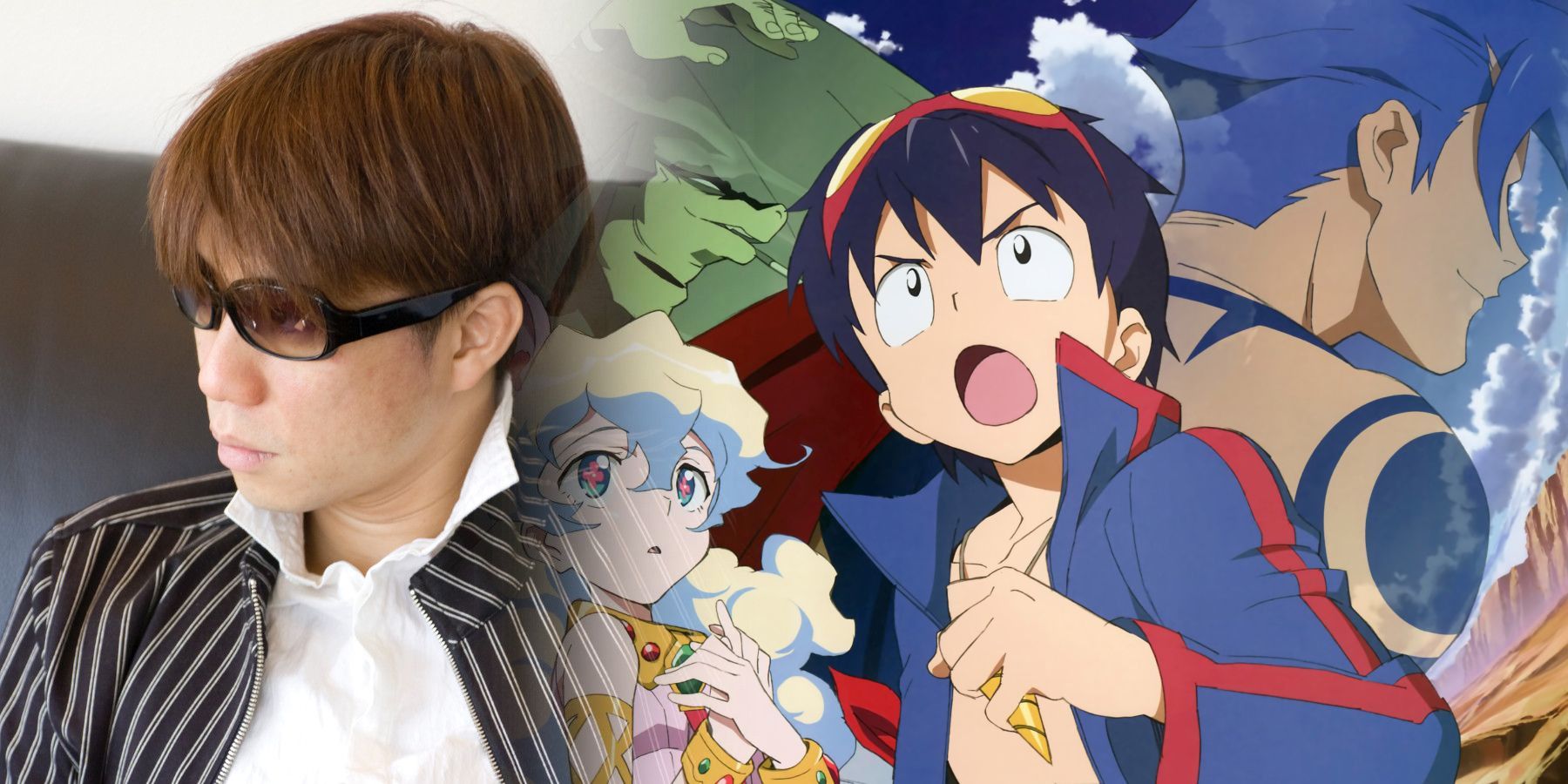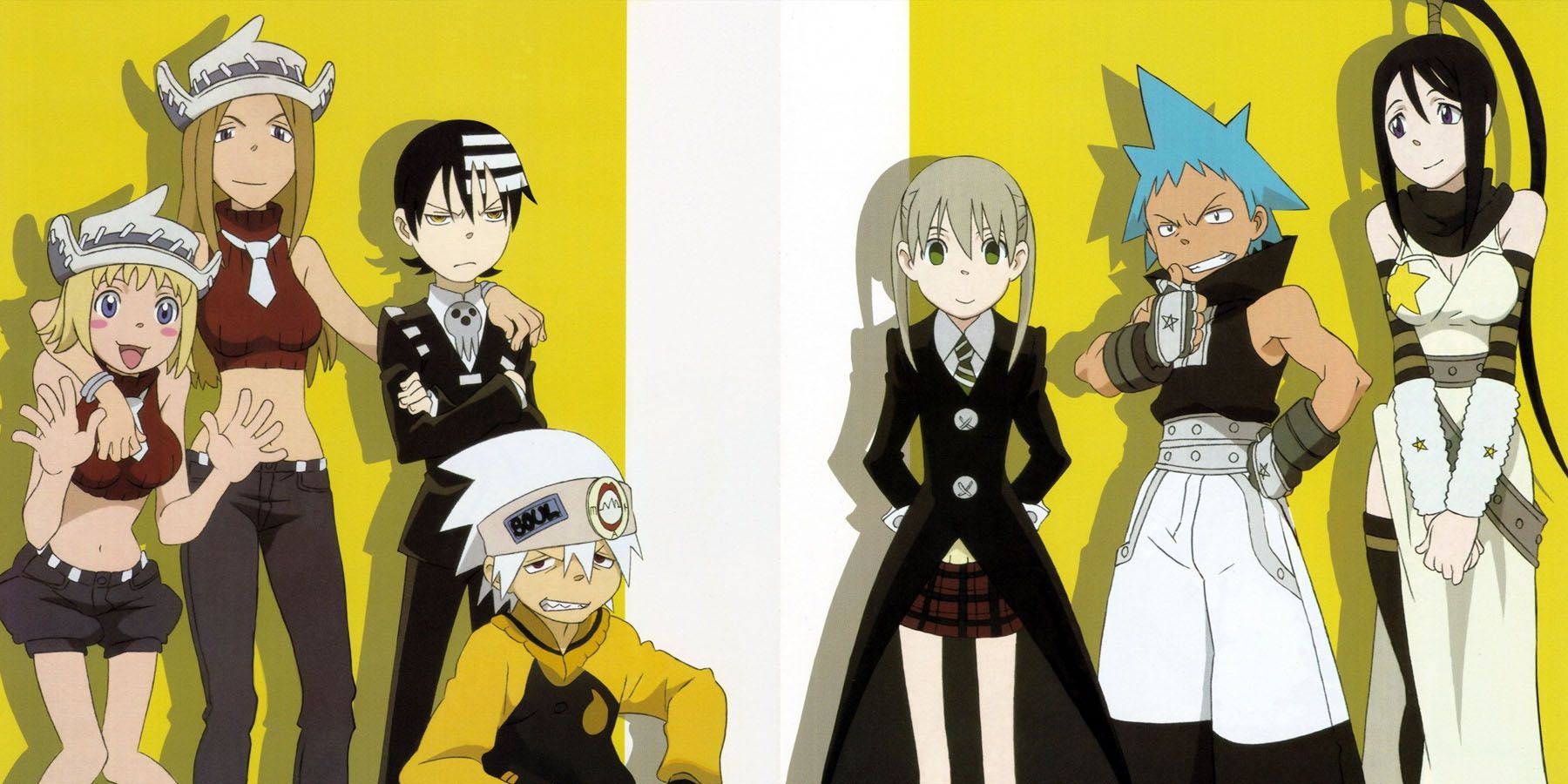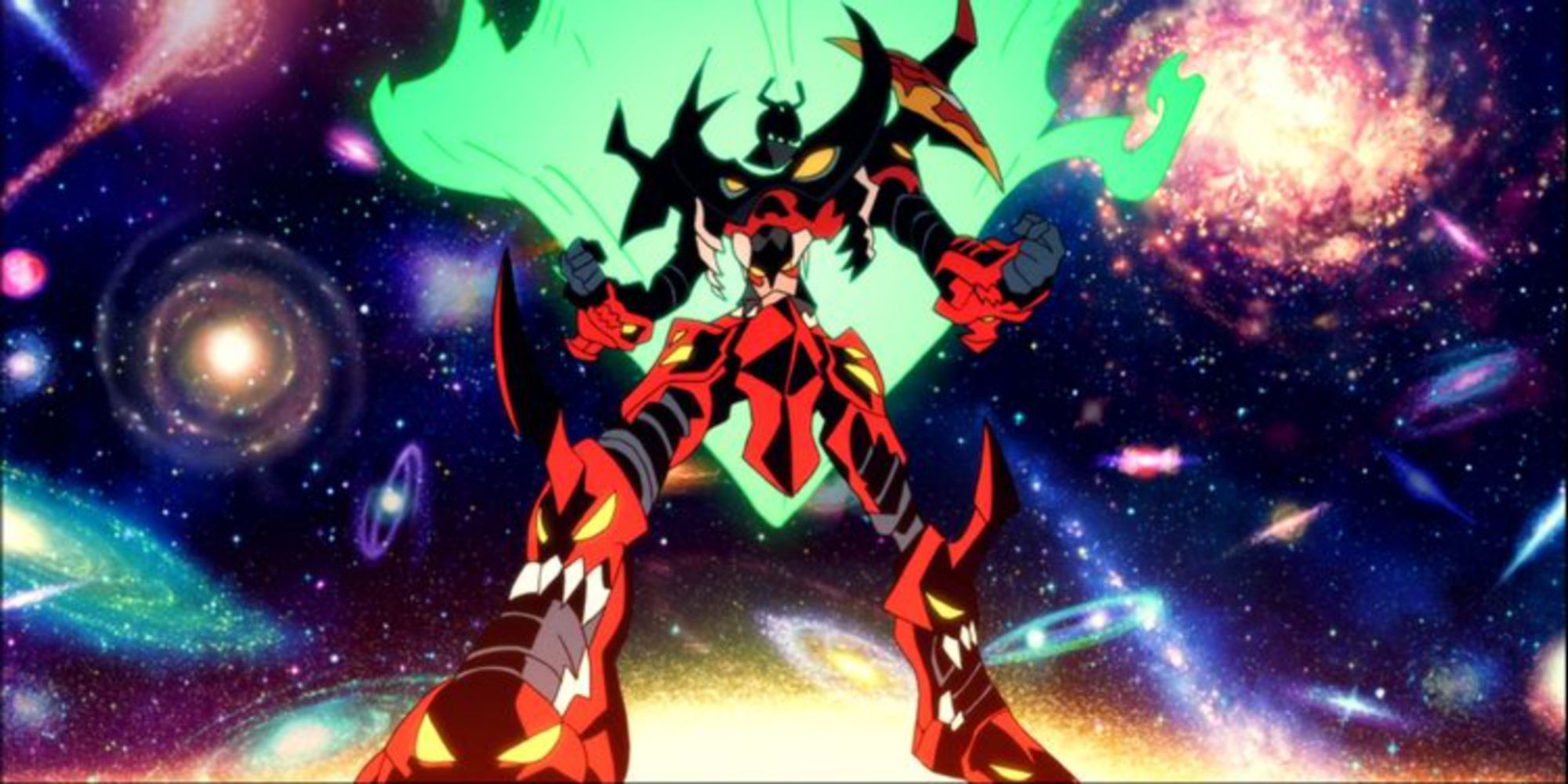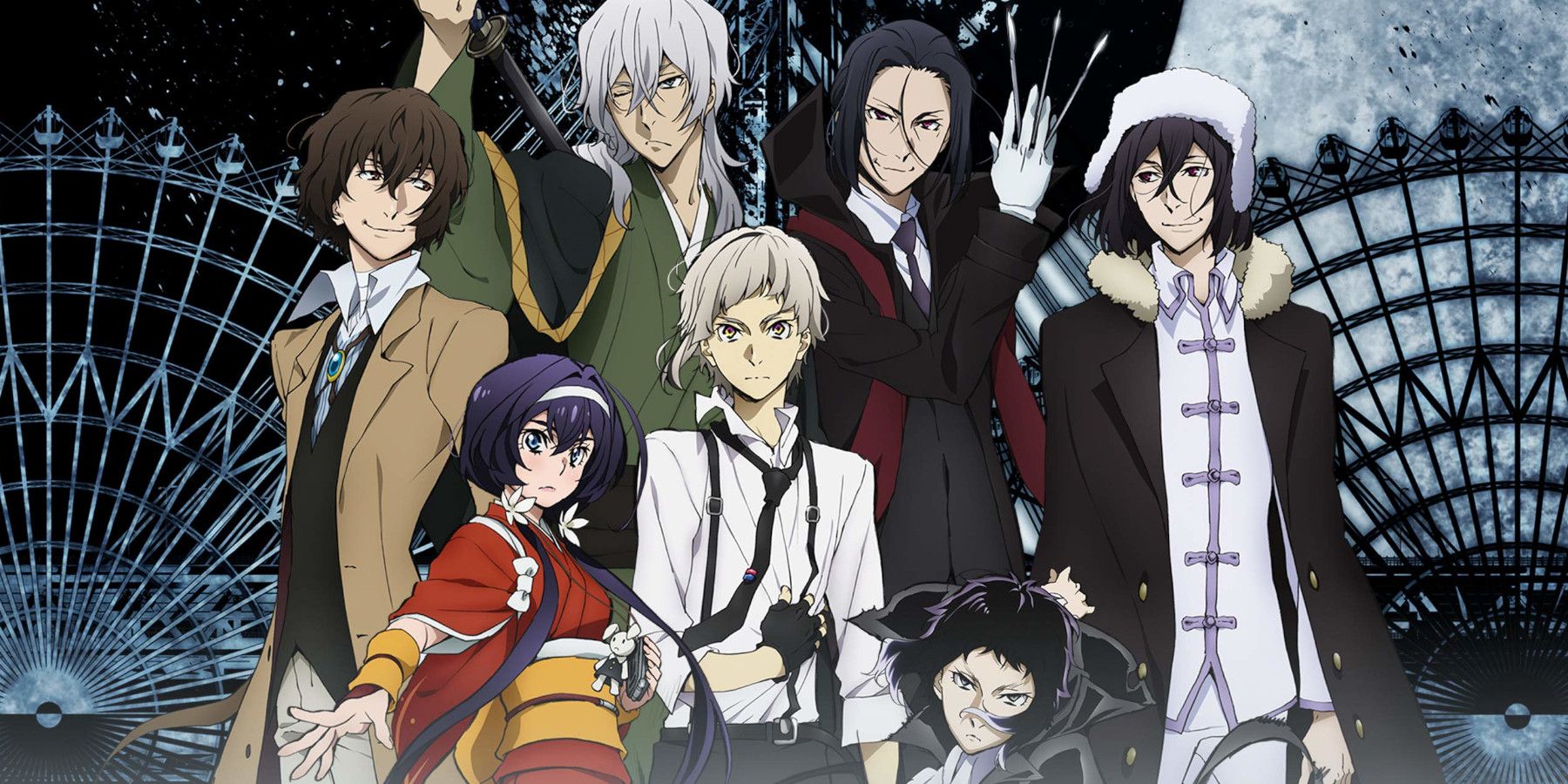Over the past half year, GameRant has spotlighted some of the anime industry’s best and brightest composers, from the intense tracks of Hiroyuki Sawano to the masterworks of Yoko Kanno. It’s become something of a series and despite the impressive line-up thus far, no composer has excited this author quite like Taku Iwasaki.
Iwasaki was born on January 21, 1968, and raised in Tokyo, later graduating from Tokyo National University of Fine Arts and Music. Iwasaki’s touch is most potent in the foundational anime of many fans, having composed for Tengen Toppa Gurren Lagann, Soul Eater, Black Butler, and many more. While their name has not been without praise over the years, Iwasaki isn’t a composer who is name-dropped with the same ease as Kanno or Sawano.
Speaking Through Music
Unlike past artist spotlights, It’s difficult to find interviews with Iwasaki to get a glimpse into the mind of the man himself and figure out their process and inspirations. From the outset, they are something of a taciturn savant, producing great works that have contributed greatly to the art he has been involved in.
It’s a shame that there haven’t been more opportunities to pick his brain because the accounts of those that have worked with him more or less validate such appraisals. Lotus Juice, the hip-hop vocalist most commonly known for his work in the Persona series, has nothing but great things to say about them and continues to work with them to this day.
“[I got involved with Jojo’s Bizarre Adventure] through Taku Iwasaki. He’s the guy who wrote the track I rapped on… I think in total I’ve done about 12 or 13 songs with him, including ones for Black Butler, Soul Eater, Katanagatari… he’s a true musician, very detailed, very versatile. He doesn’t compromise at all, and neither do I, so it’s very easy to work with him. Same with Shoji Meguro, the composer for the Persona series.”
-Lotus Juice, Otaku USA Magazine, October 29, 2013
A comparison to Meguro of Persona fame is no small compliment. In fact, despite a divisive reception, the anime Persona: Trinity Soul was composed by Iwasaki, perhaps recognizing their talents. Iwasaki and Meguro are similar in their versatility and creating diverse sounds that can appeal to everyone.
At the same time, their arrangements are so different that Iwasaki’s score for Trinity Soul feels dissimilar to a lot of Persona scores. It’s far more orchestral throughout, carrying a certain operatic weight. And it’s a peculiar dissonance, as one only needs to listen to Iwasaki’s work on Soul Eater to find a score much more comparable to the “Persona sound.”
“I think Aniplex tried to get Shoji Meguro to do the music for the show, but he was too busy, so they got Iwasaki, who’s just… he’s a really underrated, great composer. And so I started doing stuff for Iwasaki, and that led to me working on all the other shows I mentioned earlier.”
-Lotus Juice, Otaku USA Magazine, October 29, 2013
An Inspired Blend
When someone describes something as a “Persona” sound, it tends to speak to that franchise’s blend of genres. Be it 3, 4, or 5, the music combines instrumental tracks evoking the mysterious and paranormal with very modern and poppy tracks that can be high energy or incredibly chill. And Taku Iwasaki’s style is similarly a mix of influences
By now, it’s not particularly impressive to praise an artist in this spotlight series for having a mix of genres in their music. However, it’s fair to say that not every artist who is “versatile” is versatile in the same way. Yoko Kanno and Shiro Sagisu are versatile because they have excelled in various genres while Hiroyuki Sawano tends to combine epic orchestras and rock or electronica to give a contemporary bend.
But while Iwasaki does create some truly tragic and beautiful orchestral pieces, he sometimes appears to operate on a mindset that the stranger the blend, the more fruitful the endeavor. Closing one’s eyes and listening to his more jazzy tracks from Soul Eater or Bungo Stray Dogs sets the mind alight, a battle of sounds seemingly at odds, harmonizing in unexpectedly fitting ways.
Death City from Soul Eater’s soundtrack shouldn’t work as well as it does, yet the song captures the vibe of the show perfectly. The hypnotic saxophone accompanied by the consistent drum beat and swelling string section perfectly sums up the vibe of the anime’s bizarre world that gets close to mirroring our own yet seems… off.
Music can define the perception of a work of art almost as much as the voices of a character or even the animation itself, and Iwasaki’s work dominates the scene like the best artists. It would be hard to imagine Soul Eater or Gurren Lagann’s biggest moments hitting quite as hard without his music.
And what has allowed his music to continue impressing, rather than stagnating or perhaps straying from where he is at his strongest, is the influence of popular music. As his career has gone on, he’s drawn more and more inspiration from different sources. Gatchaman Crowds’ soundtrack carried the romantic swells of Gurren Lagann’s score but leaned heavily into electronic and even dubstep.
And this is without even acknowledging his use of hip hop and vocal samples, both of which not only have defined his portfolio but contributed to Gurren Lagann’s greatest tracks. The triumphant orchestra never has to back down or take a back seat to the hip-hop elements but works in tandem to create something awe-inspiring.
Going Forward
What Iwasaki does for music in anime is like what famed animator Yutaka Nakamura does for sakuga. Their style might change and evolve as they implement new techniques and influences, but they have certain qualities that don’t go away no matter how much time has passed.
Iwasaki has been scoring Bungo Stray Dogs since its first season in 2016, and it might be some of his best of all time. Sometime around when the film came out, Iwasaki embraced the theatricality and created a score that feels so above what is typically demanded of a composer for a TV anime.
When listening to tracks like “Dead Apple” or “I Am A Cat” it feels like Iwasaki’s music has only become grander, with a keen grasp on the sounds that tug at the heart. His work in television is sounding more and more like the kind of high-quality composing one finds in feature films.
So it’s incredibly exciting that he will be scoring Shin Kamen Rider, the upcoming film by Hideaki Anno, a man who usually works almost exclusively with Evangelion composer Shiro Sagisu. Taku Iwasaki’s reputation may speak for itself, but it should also be shouted from the rooftops by those who adore it. His is a name that deserves to be recognized in the same breath as composers like Yoko Kanno, but even if it continues not to be, it wouldn’t deter them in the least.
Sources: MyAnimeList, Aniplex, Otaku USA Magazine




